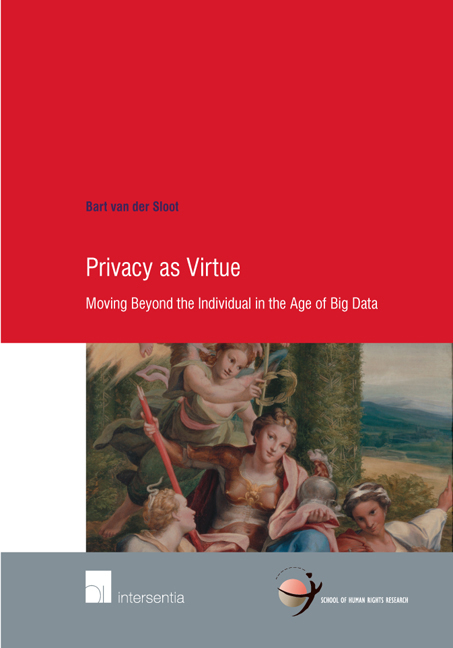Book contents
- Frontmatter
- Contents
- Chapter I Introduction
- Chapter II The Transformation of the Right to Privacy and the Right to Data Protection
- Chapter III The Challenges for and Alternatives to the Current Privacy Paradigm
- Chapter IV Developing an Alternative Privacy Paradigm through Virtue Ethics
- Chapter V Embedding a Virtue-based Approach in Privacy Regulation
- Chapter VI Conclusion
- Bibliography
- Miscellaneous Endmatter
Chapter III - The Challenges for and Alternatives to the Current Privacy Paradigm
Published online by Cambridge University Press: 12 October 2018
- Frontmatter
- Contents
- Chapter I Introduction
- Chapter II The Transformation of the Right to Privacy and the Right to Data Protection
- Chapter III The Challenges for and Alternatives to the Current Privacy Paradigm
- Chapter IV Developing an Alternative Privacy Paradigm through Virtue Ethics
- Chapter V Embedding a Virtue-based Approach in Privacy Regulation
- Chapter VI Conclusion
- Bibliography
- Miscellaneous Endmatter
Summary
INTRODUCTION
The previous chapter argued that both the right to privacy and the right to data protection are (1) increasingly seen as subjective rights of natural persons instead of duties (of care) for states and data controllers, (2) increasingly focused on individual instead of general interests, (3) increasingly balanced by courts against other interests instead of a necessity test being applied and (4) increasingly codified (in detail) and enforced through legal means. As has been suggested in the introduction, in the current technological environment with developments such as Big Data, however, the individualized and legalized approach to privacy is becoming increasingly problematic. This will be discussed in Section 2 of this chapter. Section 3 shows that the European Court of Human Rights is confronted with this tension, especially in large data processing cases but also other matters, and is subsequently faced with a principled choice when dealing with these cases. Either it sticks to the basic pillars of the current privacy paradigm, as discussed in detail in the previous chapter, and consequently is unable to address those cases adequately, or it chooses to develop a new approach to privacy in order to adequately tackle the problems involved with these types of cases. Interestingly, it chooses the latter approach. Section 4 will analyze some of the scholarly literature in which alternatives to the current privacy paradigm have been proposed.
THE CHALLENGES BIG DATA POSES TO THE CURRENT LEGAL PARADIGM
This section discusses the current legal framework and shows on which points Big Data practices and mass surveillance activities may challenge the fundaments of the legal framework. It would go too far to discuss all points in detail. Instead, three conflicts will be shown. First, Big Data conflicts with the material provisions in the Data Protection Directive and the General Data Protection Regulation. Second, Big Data challenges law's focus on the individual. Third and finally, Big Data challenges regulation based exclusively on legal means. A few examples will be given to illustrate these three points, without aiming to be exhaustive.
BIG DATA AND DATA PROTECTION
The classic data protection principles seem to be challenged by Big Data processes. This is confirmed by a survey conducted among all DPAs in the European Union.
- Type
- Chapter
- Information
- Privacy as VirtueMoving Beyond the Individual in the Age of Big Data, pp. 71 - 106Publisher: IntersentiaPrint publication year: 2017

